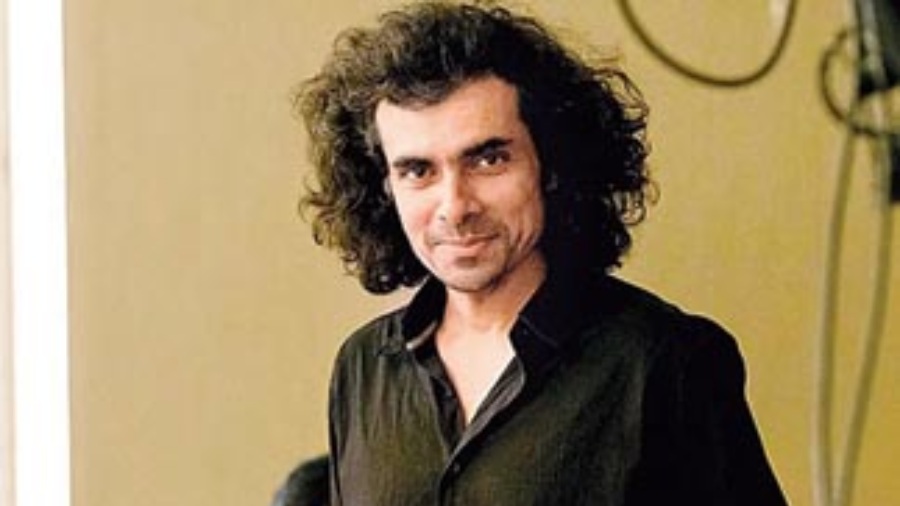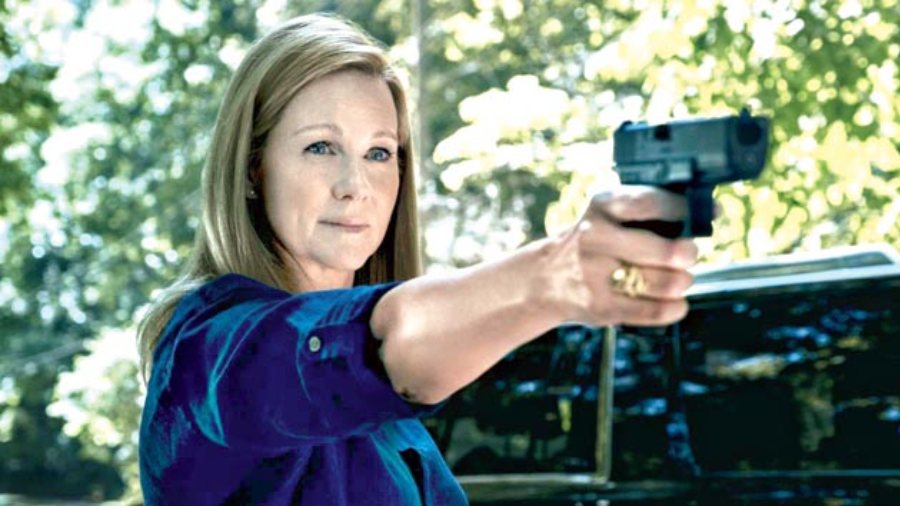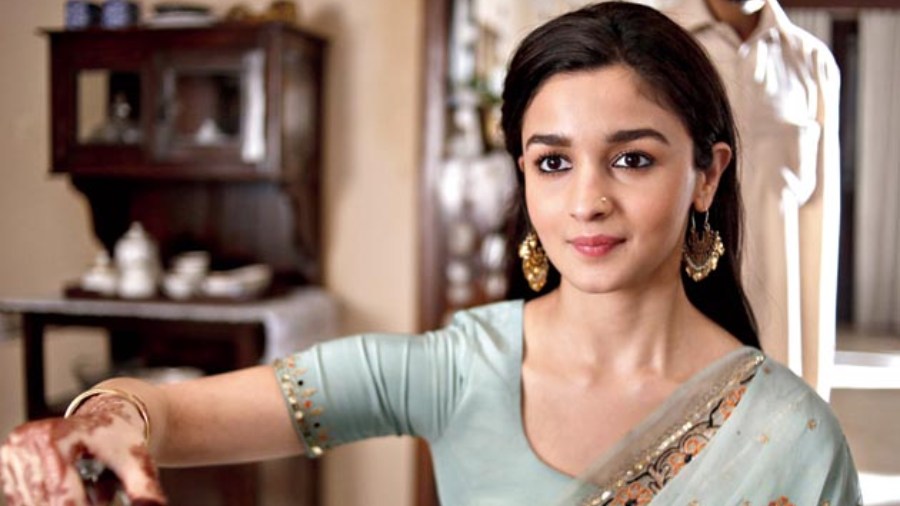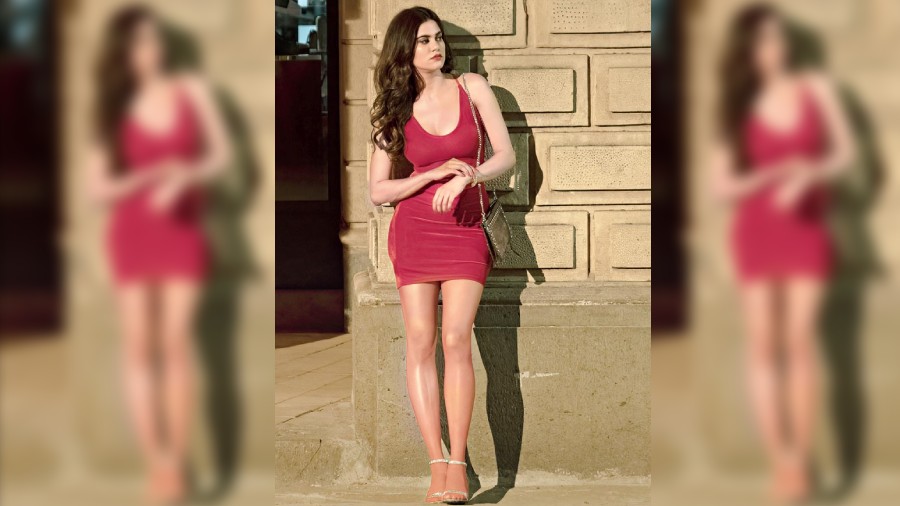The first season of She dropped on Netflix just a few days before the world went into the pandemic-induced lockdown in March 2020. The story of a meek police constable (Bhumi, played by Aaditi Pohankar) who goes undercover and poses as a prostitute to bust an underworld gang, but in the process discovers herself and the power of her sexuality, met with both criticism and praise, but the performances — Aaditi, Vijay Varma and Kishore Kumar G — stood out.
Created and written by film-maker Imtiaz Ali and directed by his brother Arif Ali, Season 2 of She will stream on Netflix this Friday. Before that, The Telegraph chatted with Imtiaz, Arif and Aaditi on the roots and wings of She and their favourite women on screen with agency.
Is there any piece of feedback from Season 1 that remains memorable and which played a part in spurring Season 2?
Imtiaz Ali: In the first season, people were really interested in the unexpected turn that took place within Bhumi (played by Aaditi Pohankar) when she was put into that difficult spot. There was a turnaround in her that led to self-discovery. I think Arif (Ali, director) shot that scene very nicely in the hotel room where Sasya (played by Vijay Varma) and Bhumi struggle for survival. That particular scene was very interesting and also symptomatic of what the show was going to be.
I am sure it was a very difficult scene for Aaditi and Vijay to perform. But what happened at the end of it was that Bhumi surprised herself. And the audience began to expect that kind of quality from the show... that they will be surprised, because the character is surprising herself. That’s something we took forward.
Arif Ali: In Season 1, the audience really caught on to many things that I had not imagined... very, very fine details of character, of look, of the changes that the character was going through... what was happening between her and her sister and between her and the various men around her.
The first season of She had an obvious story and many smaller stories within it. I got a lot of reactions — especially from women — that I would have missed as a viewer (smiles).
Aaditi Pohankar: The way Bhumi changed... a lot of people told me that it felt very empowering. From the timid constable she was to taking that step to go undercover and all that she did after that was for the sake of survival. If one suppresses one’s emotions for a very long time, then it’s said that that person becomes very dangerous. Bhumi is someone who doesn’t express herself. To the extent that even if she wants another plate of food, she won’t go and say, ‘Mujhe thoda aur khana de do.’ She’s been so suppressed for so long that eventually when she expresses herself, that scene came out very organically.
What I am telling you is what the viewers have told me about Bhumi. What she did empowered not only women, but also made many men say that they understood women better after watching Bhumi.

This (Bhumi) is a woman who was thrown into a situation where she had to rely on her agency. She also realised that being disadvantaged and being in an uncomfortable position actually gave her a sense of power. I don’t know if writing her will change how I look at approaching my female characters from now on, but Bhumi is definitely a very interesting and unpredictable character for me. I also feel that there is a lot that I have in common with her — IMTIAZ ALI
Imtiaz, you have written so many different kinds of women, all of whom have been impactful in their own ways. Has writing the character of Bhumi changed the way you look at women, or at least write about them?
Imtiaz: This is a woman who was thrown into a situation where she had to rely on her agency. She also realised that being disadvantaged and being in an uncomfortable position actually gave her a sense of power. I don’t know if writing her will change how I look at approaching my female characters from now on, but Bhumi is definitely a very interesting and unpredictable character for me. I also feel that there is a lot that I have in common with her.
Aaditi, was it easier to slip into being Bhumi in Season 2?
Aaditi: In fact, it was tougher. In Season 1, I was a clean slate... I had no idea who Bhumi was (smiles). I discovered her during the course of Season 1. In the second season, while I knew who Bhumi was, I was even more scared of what she will become! (Laughs)
As an actor, everyone gets these jitters. When I was first offered the show, I remember I was walking back from Imtiaz sir’s home. It was the rainy season and I was so engrossed in thinking about Bhumi that I slipped on the footpath and I fell and even the script I had tore (smiles). I was constantly thinking, ‘How will I perform these scenes? What am I going to do?!’ And then I told myself, ‘Stop! The more you think about it, the more confused you will get.’
It was tougher this time. But I always believe that the best things arise out of simplicity, surrender and acceptance. I accepted Bhumi the way she was and I surrendered to her, and I finally met her at one point. That gave me the hang of how I would go with the rhythm of the script. From there on, it was a great journey.
Imtiaz, did you always want to name the show She?
Imtiaz: I wanted She, but it wasn’t easy to convince everybody that She is a good title and that it will stick (smiles). I am glad we went with it because I couldn’t really think of any other word or any phrase that would better describe what was going on in the show. It’s such a short title and it’s intriguing because when you hear it for the first time, you don’t really know what it is.
Arif and Imtiaz, how has the Indian audience evolved in accepting women who aren’t simply black or white? This is with special reference to Bhumi who discovers the power of her sexuality and doesn’t shy away from using it....
Arif: I think the audience has become very accepting. What would perhaps be termed ‘immoral’ a few years ago and would straightaway be relegated to the bracket of villainy is now being accepted as part of a person’s choice and character. They understand why a character does what it does and they respect that. That is something that’s very gratifying for a maker. The audience may not agree with something you show, but they are definitely accepting it. As a maker, that enables me to keep pushing the envelope a little bit more each time.
Imtiaz: I have felt that the audience is always ready for any kind of character. In Pakeezah, people liked Meena Kumari’s role (she played a courtesan). People have always been accepting... our mythology is riddled with characters that are controversial and could have been ostracised or rejected by the audience. But they never were... they were always loved, even though they were flawed. Actually, we are the ones who have to widen up as film-makers and try and reach the level at which the Indian audience is there already.
You are saying this even in the age of knee-jerk outrage that we are in?
Imtiaz: Especially in the age of knee-jerk outrage! It’s almost fashionable to celebrate intolerance in many ways. People also have the digital route now. But an unexpected degree of tolerance is also seen in many things. I know the other side gets highlighted more, but there have been many good things that have happened in India over the last 25 years. Like gender equations have improved. I feel that the positive response that we got for the first season of She is a part of that.
If you had to pick a favourite woman character with agency on screen, who would it be?

Imtiaz: I think Laura Linney’s character (Wendy Byrde) in Ozark. She’s full of evil at certain times, but she always has agency. She does things that are revolting, and as a viewer, I detest them. But I am always surprised by her agency as well as intrigued by the fact that the makers make no bones about the fact that she is morally reprehensible.

Arif: I would pick Alia Bhatt in Raazi. Her character (Sehmat) does something wrong personally, but you still understand where she comes from and root for her. At the end of the film, you feel bad for everyone, even the so-called enemy.

Aaditi: I really liked the girl (Anna Delvey, played by Julia Garner) in Inventing Anna and her accent... wow! I loved the show and the performance.
